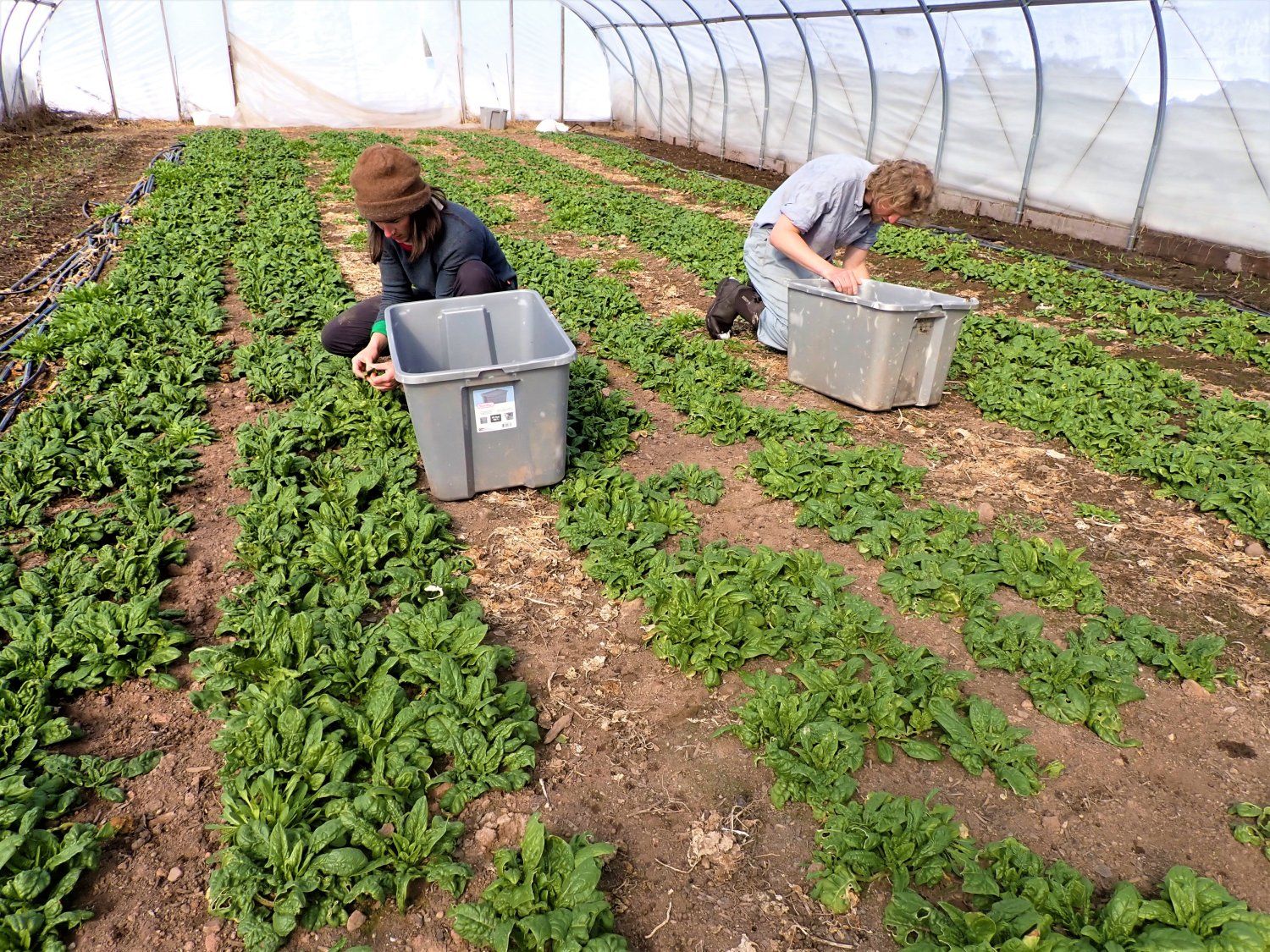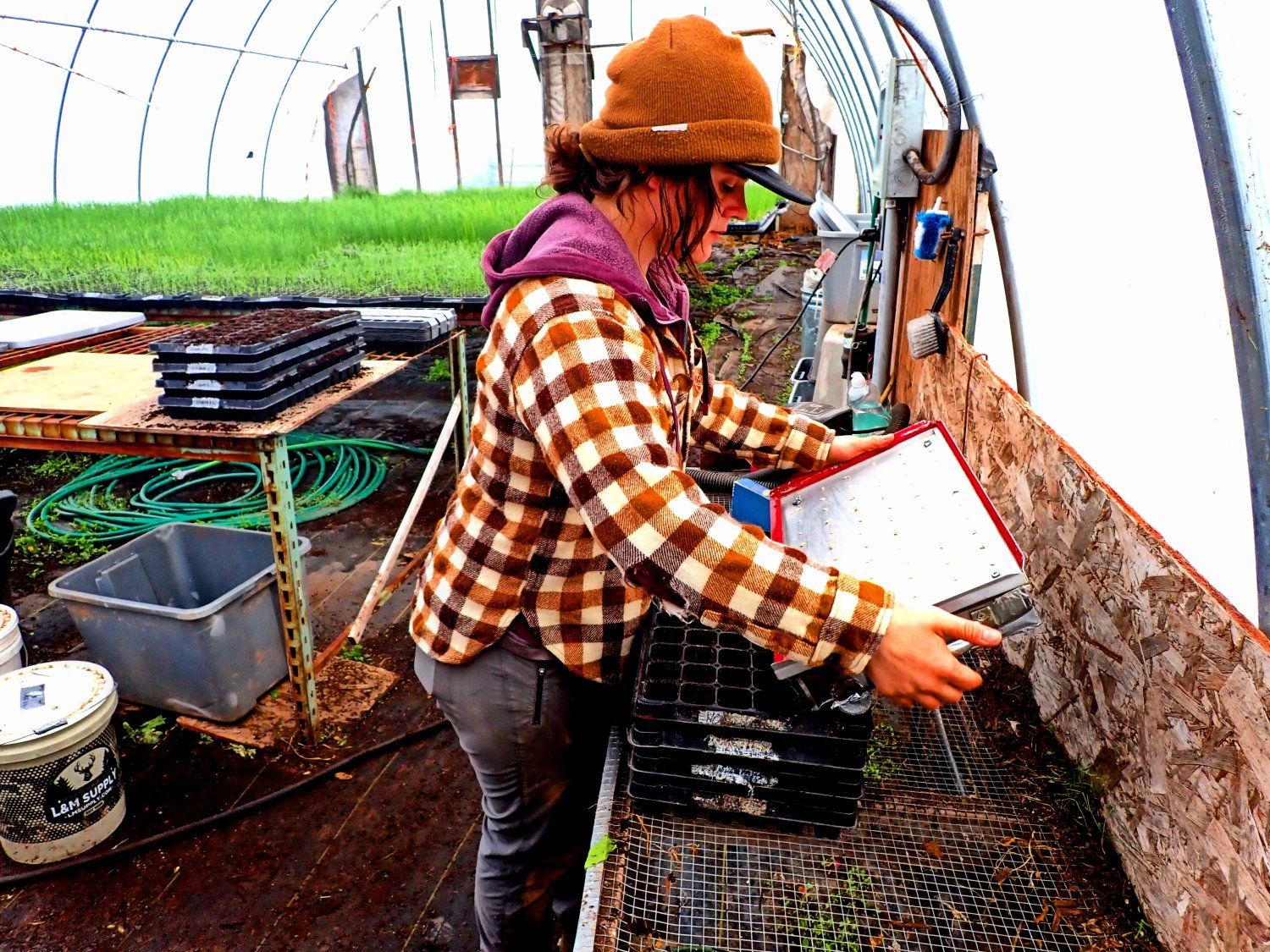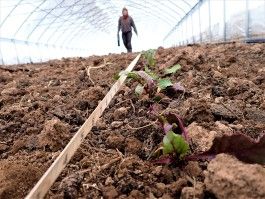Despite the 8+ inches of fresh snow that fell this week, we managed to get the first hoophouse transplants of the 2022 growing season in the ground - hardy beets! Transporting tools and transplants around in these conditions - sticky wet snow on top of very soft ground - means we have to haul everything from place to place with a sled. Feels like winter again, but spring is a fickle thing at first.
All of our hoophouses are managed by hand from start to finish - no tractors in the hoops. Getting the soil ready for planting starts with starts with laying string out to mark the beds and broadforking them to loosen the soil. Next, we add any soil amendments and hoe the beds to break up any clumps of soil. Finally, we rake the soil smooth, and get to transplanting.
The bed prep process in those hoops is a simple one, and working the soil gently by hand has helped to improve soil quality in these intensively cultivated structures. But like many farm tasks, doing all the bed prep by hand is physically demanding. Our backs and hands are feeling it this week, but it's for a good cause. Honest, local, organic food for our community.
The rake we use for smoothing out the bed tops has short, flexible metal tines and is useful for weed control as well. Think "shallowly raking out tiny weeds while leaving the crop intact." It only works if all conditions are right: very small weeds just starting to germinate; short, flexible stems/leaves on the crop; and a nice, loose soil texture. But when the timing is right, it does a great job at organic weed control. Below, you can see before (on the left) and after raking in one of our hoophouse garlic beds.
We have a larger, tractor mounted implement called a tine weeder that we use for field crops which does essentially the same thing: stir up the soil with spring loaded tines throughout the whole bed shallowly enough to knock back the tiny weeds while leaving the crop in place.
Whether used by hand in the hoophouses or behind the tractor in the field, the tine rake or tine weeder is one of my favorite tools in our weed management toolbox. With no sharp edges (like a hoe or cultivator shovel) they are also very forgiving on our earthworm population. Earthworms help keep the soil loose and aerated, and their castings (earthworm poo) are rich in fertility as well. If you look closely in the picture above, you can see a couple of worms in that bed of garlic.
.JPG_2.jpg)
Also, this week welcomed Farmer Ellen to the team here at Great Oak Farm! She brings with her a wealth of knowledge and experience, having helped manage the crop production at Featherstone Farm - a large (for midwestern standards) organic produce farm in southern MN - for several years.
For perspective, we grow about 12-15 acres of veggies here at Great Oak, which is no small task. Featherstone grows the same variety of veggies that we do, just on a waaay larger scale. How much larger? Well, they grow more acres of JUST CARROTS than we have in production - that's how large! We're honored to be working with her, and having more good heads in the game will help us to overcome whatever challenges arise as the season unfolds.
That's all from the farm this week - think Spring, friends!
In community,
Farmer Chris
Great Oak Farm

.JPG)
.JPG)
.JPG)



